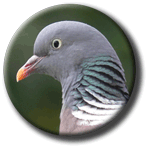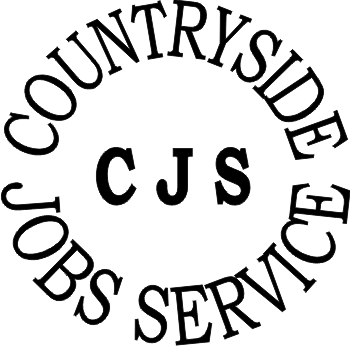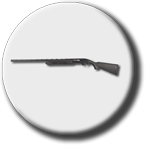Naturenet: Guns and Weapons
Guns and Weapons
For more general information on shooting and fieldsports see the following
links:
Gun law is complex. Be sure to check the law before you take any action. The
following are guidelines and advice only and do not specifically state the
law.
These paragraphs refer mostly to guns used in unauthorised situations, and
do not generally apply to guns used, for example for sporting purposes, by
persons authorised by the landowner.
Guns are often encountered by countryside professionals, and are frequently
used legally and effectively without problem. Occasionally a landowner will
encounter someone using or carrying a weapon which is not authorised. In a
public place, such as a country park, this can call for sensitive, quick, action.
A good knowledge of the law can help the countryside professional in such cases.
The following is derived partly from guidelines produced for staff at an urban
country park where unauthorised shooting was a problem.
The law may be thought to be a little complicated but it is designed to make
sure that guns can be properly used by people without danger to anyone else,
or the environment. Obeying the law will not prevent anyone from enjoying responsible
gun ownership, and safe use of the countryside. Countryside professionals are
strongly advised to familiarise themselves with these laws if they are likely
to be encountering those abusing them - gun users are often very familiar with
the law.
Adapted from a leaflet entitled AIRGUN LAW published
by the Shooting Sports Trust Ltd; updated to include elements of the Anti-Social
Behaviour Act 2003 and the Violent Crime Reduction Act 2006.
Guns powered by compressed carbon dioxide
(CO2) are treated in the same way as air weapons, i.e. if they have a
muzzle energy less than 12ft lbs for rifles and less than 6ft lbs for pistols
no firearms certificate will be required.
It is against the law for anyone to have an airgun in a public place unless
they have some proper reason for doing so - for example, it has just been confiscated
from an offender. A public place is anywhere where the public are allowed to
go, regardless of who owns the land, and even though they may have to pay.
Roads, streets, footpaths, canal towpaths, public parks, play areas are all
examples of public places. If the general public have some sort of right or
permission to be in a particular place, that is a public place and you are
not allowed to have an airgun in that place.
It is an offence to fire an airgun within 50 feet of the centre of a public
highway, if by doing so you cause any member of the public using that highway
to be injured, interrupted or endangered. This applies even if you are on private
property adjacent the highway. Public highways include roads, bridleways and
public footpaths.
If you go on to any land, including over water and in buildings,
without permission you are trespassing. If you have an airgun with you it is
classed as 'armed trespass' which is a serious criminal offence even if the
gun is not loaded.
It is an offence for a person, other than a registered firearms
dealer, by way of trade or business, to sell or transfer an air weapon, expose
such a weapon for sale or transfer or have such a weapon in his possession
for sale or transfer. All sales will have to be face to face and the buyer
must be at least 18 years of age.
These restrictions apply to young
people. Two age groups are involved, those aged between 14 and 17 years and
those under 14 years. You must be 18 or older in order to purchase air guns
and ammunition, but you do not require a firearms licence so long as the
power is not greater than the UK legal limit, which is 12 foot pounds of
force (12ftlb) for air rifles, and 6 foot pounds (6ftlb) for air pistols.
Persons aged 14 to 17 years
No one under 18 may buy or hire an air rifle, or ammunition,
or receive one as a gift.
No one under the age of 18 can
have with him/her an air weapon even if it is in a securely fastened gun
cover so that it cannot be fired unless they are supervised by someone
who is aged at least 21, except::
- As part of an approved target shooting club or shooting
gallery.
- If a young person aged 14 to 17 is on private premises
and has the consent of the occupier to have an air weapon with him/her.
In this age group a person can use an airgun on private property
where they have a right to be and permission to shoot, without supervision
although it is an offence for an unsupervised person aged between 14 and
17 to fire airgun pellets beyond the boundaries of private land on which
they have permission to shoot.
Persons under 14 years
If you are under 14 years the restrictions on using an
airgun are very strict indeed. All those restrictions which apply to adults
and people in the 14 to 17 age group apply to you and there are more. You may
not buy or hire an airgun or ammunition and may not even accept an airgun as
a gift. If anyone gives or sells an airgun or ammunition to a person under
14 years he commits an offence. Persons who wish to buy an airgun for a person
under 14 years must keep control of it at all times and must not allow the
child to be in complete control, though he can be allowed to use it under supervision
by a person over 21.
If you are under 14 years you can have an airgun and
ammunition temporarily in your possession only when supervised by a person
over 21 and only then in two special situations:
- In connection with your membership of an approved rifle club or cadet corps
or when at a shooting gallery.
- You can have the airgun temporarily, and you can use it when you are on
private premises where you have a right to be provided you are under the
supervision of a person who is over 21 years old. If a pellet goes outside
these premises on to someone else's property, both the child and the adult
may be taken to court. You can also carry an airgun or air rifle (but not
an air pistol) in a public place if it is in a securely fastened gun cover
and you are supervised by someone over 21 years.
For all practical purposes a person under the age of 14 years must be supervised
by someone over the age of 21 years at all times when he has an airgun in his
possession, even within his own home.
It is an offence to fire any weapon within 50 feet of the centre of any roadway,
if by doing so you cause a nuisance. This offence could be committed by someone
on private property close to a road who used a gun in a way which upset people
on the road.
 Most birds are completely protected by law. It is sometimes thought that those
birds which are often called vermin can be killed at any time by anyone.
That is not so. Birds which are often regarded as pests (crows, pigeons,
starlings, etc.) may only be killed by what the law calls an 'authorised
person', that is the person who owns the land or who has permission to shoot
pests. A trespasser or a person who shoots at such a bird in a public place
will commit offences against the Firearms Act for having a gun and also against
the law on the protection of birds by killing, or even trying to kill, a
wild bird when he is not an authorised person.
Any gun is a serious matter. It is normally an offence to have any firearm
in a public place, unless safely covered. Even if it is safely stowed any
firearm other than an airgun, unless obviously for an innocent purpose, could
reasonably be reported to the police by a ranger. Anyone firing any weapon
on or over a piece of land without the permission of the landowner is probably
guilty of an offence, and should certainly be reported to the police.
Most birds are completely protected by law. It is sometimes thought that those
birds which are often called vermin can be killed at any time by anyone.
That is not so. Birds which are often regarded as pests (crows, pigeons,
starlings, etc.) may only be killed by what the law calls an 'authorised
person', that is the person who owns the land or who has permission to shoot
pests. A trespasser or a person who shoots at such a bird in a public place
will commit offences against the Firearms Act for having a gun and also against
the law on the protection of birds by killing, or even trying to kill, a
wild bird when he is not an authorised person.
Any gun is a serious matter. It is normally an offence to have any firearm
in a public place, unless safely covered. Even if it is safely stowed any
firearm other than an airgun, unless obviously for an innocent purpose, could
reasonably be reported to the police by a ranger. Anyone firing any weapon
on or over a piece of land without the permission of the landowner is probably
guilty of an offence, and should certainly be reported to the police.
Any unauthorised non-airgun should definitely be dealt with by the police.
Weapons such as crossbows, bow and arrow, or even large catapults can be just
as dangerous. It is also an offence to be in possession of an imitation firearm
in a public place without lawful authority or reasonable excuse, so if it looks
like a gun, assume it probably is one and behave accordingly. If a person is
behaving dangerously with any weapon, or seems likely to, call the police and
tell them there is an armed person in a public place - they will be quick to
help you deal with the situation.
The 1997
Firearms (Amendment) Act prohibits handguns
as from 1 July 1997. It defines a handgun as "any firearm which
either has a barrel less than 30 centimetres in length or is less than 60
centimetres in length overall".
In any case of doubt about any weapon:
- Do not approach the gun user.
- Call for help.
- Keep others away from the scene until help arrives.
Information below from Metropolitan Police age
restrictions (shotguns and firearms).
Under 14 years old |
| CAN: |
- Hold a shotgun certificate.
|
| CANNOT: |
- Hold a firearm certificate.
|
| CANNOT (Even if the holder of a relevant
certificate): |
Purchase or hire shotguns until 17 years old OR
Receive a gift of a shotgun until 15 years old. |
Under 15 years old |
| CAN: |
- Hold a shotgun certificate, and
- Hold a firearm certificate.
|
| CAN (If authorised by the relevant
certificate): |
- Receive a gift of a Section 1 firearm from the age of 14
years old.
|
| CANNOT (Even if the holder of a relevant
certificate): |
- Purchase or hire a shotgun until 17 years old.
- Purchase or hire a firearm until 17 years old.
- Receive a gift of a shotgun until 15 years old.
- Possess an assembled shotgun unless:
- supervised by a person over 21 years old, (preferably a shotgun
certificate holder), or
- the gun is so covered with a securely fastened gun-cover that it
cannot be fired.
|
Under 17 years old |
| CAN: |
- Hold a shotgun certificate, and
- Hold a firearm certificate.
|
| CAN (If authorised by the relevant
certificate): |
- Receive a gift of a shotgun from the age of 15 years.
- Receive a gift of a firearm from the age of 14 years.
- Possess a shotgun if covered and secured from the age of 15 years.
|
| CANNOT (Even if the holder of a relevant
certificate): |
- Purchase or hire shotguns until 17 years old.
- Purchase or hire firearms until 17 years old.
|


 Most birds are completely protected by law. It is sometimes thought that those
birds which are often called vermin can be killed at any time by anyone.
That is not so. Birds which are often regarded as pests (crows, pigeons,
starlings, etc.) may only be killed by what the law calls an 'authorised
person', that is the person who owns the land or who has permission to shoot
pests. A trespasser or a person who shoots at such a bird in a public place
will commit offences against the Firearms Act for having a gun and also against
the law on the protection of birds by killing, or even trying to kill, a
wild bird when he is not an authorised person.
Most birds are completely protected by law. It is sometimes thought that those
birds which are often called vermin can be killed at any time by anyone.
That is not so. Birds which are often regarded as pests (crows, pigeons,
starlings, etc.) may only be killed by what the law calls an 'authorised
person', that is the person who owns the land or who has permission to shoot
pests. A trespasser or a person who shoots at such a bird in a public place
will commit offences against the Firearms Act for having a gun and also against
the law on the protection of birds by killing, or even trying to kill, a
wild bird when he is not an authorised person.